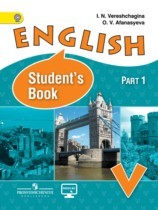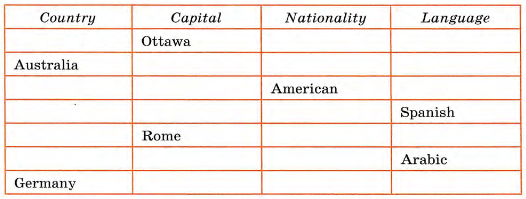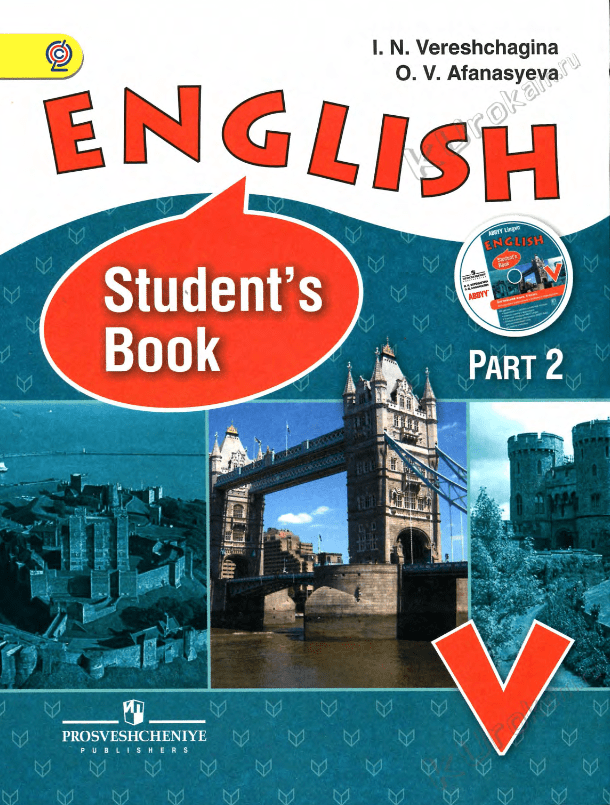
Готовые домашние задания (ГДЗ) к учебнику «Английский язык 5 класс углубленный уровень» авторов О.В. Афанасьева, И.Н. Верещагина — это полезный инструмент для школьников, помогающий разбирать сложные темы, проверять себя и лучше усваивать материал. Данное пособие охватывает все части учебника, включая основные упражнения, тексты и грамматические задания.
ГДЗ по Английскому языку 5 Класс Часть 1 Страница 90 Углубленный Уровень Афанасьева, Верещагина — Подробные Ответы
Copy the table and fill it in.
| Country | Capital | Nationality | Language |
|---|---|---|---|
| Canada | Ottawa | Canadian | English, French |
| Australia | Canberra | Australian | English |
| America | Washington | American | English |
| Spain | DC | Spanish | Spanish |
| Italy | Madrid | Italian | Italian |
| Egypt | Rome | Egyptian | Arabic |
| Germany | Cairo | German | German |
Перевод:
| Страна | Столица | Национальность | Язык |
|---|---|---|---|
| Канада | Оттава | Канадцы | Английский, Французский |
| Австралия | Канберра | Австралийцы | Английский |
| Америка | Вашингтон | Американцы | Английский |
| Испания | Округ Колумбия | Испанцы | Испанский |
| Италия | Мадрид | Итальянцы | Итальянский |
| Египет | Рим | Египтяне | Арабский |
| Германия | Каир | Немцы | Немецкий |
Write the names of the countries:
- nadaca
- ncefra
- ssirua
- iyatl
- anihc
- aauisatrl
- Canada
- France
- Russia
- Italy
- China
- Australia
Write the names of the capitals:
- of Germany
- of France
- of Egypt
- of Great Britain
- of Canada
- of Australia
Express the following in English.
- Солнце встаёт на востоке, а садится на западе.
- Они продолжали жить в маленькой деревне.
- Когда мы были маленькими, мы обычно играли с игрушечными слонами и другими игрушечными животными.
- Какие горы отделяют Европу от Азии?
- Откуда Анна родом? — Она из Франции. Она родилась в Париже. Французский — её родной язык.
- Какого цвета национальный флаг России?
- The sun rises in the east and sets in the west.
- They continued to live in a little village.
- When we were little, we used to play with toy elephants and other toy animals.
- What mountains separate Europe from Asia?
- Where is Ann from? — She’s from France. She was born in Paris. French is her native language.
- What colour is the national flag of Russia?
Open the brackets and make the story complete.
FOR THOSE WHO LIKE TO TRAVEL
One day a Paris newspaper (have) an advertisement about a very cheap way of travelling. Many people (believe) it and (send) their money. A few days later each of them (get) a letter. The letter (read): «Sir, (rest) in bed and (remember) that the Earth (turn). Paris (turn) together with the Earth. You (travel) more than 25,000 kilometres a day. You (may) (look) out of the window and (enjoy) your journey.»
had/ believed/ sent/ got/ read/ rest/ remember/ turns/ turns/ travel/ may/ look/enjoy.
Для тех, кто любит путешествовать
Однажды в парижской газете появилось объявление о дешевом способе путешествия. Многие люди поверили в это и отправили свои деньги. Несколько дней спустя каждый из них получил письмо. В письме написано: «Сэр, отдыхайте в постели и помните, что Земля вращается. Париж вращается вместе с Землей. Вы путешествуете более 25 000 километров в день. Вы можете выглянуть из окна и наслаждаться своим путешествием».
To fully understand and complete this task, we need to carefully analyze each verb provided in the list and place it appropriately into the context of the story. The goal is to ensure that the story flows logically and makes sense in terms of grammar and meaning. Below is the detailed explanation and reasoning for each verb placement:
Firstly, the sentence begins with the phrase «One day a Paris newspaper (have) an advertisement about a very cheap way of travelling.» Here, the verb «have» needs to be in the past tense to reflect the time frame of the story. Thus, we use «had» to indicate that the advertisement was already published in the newspaper.
Next, the sentence continues: «Many people (believe) it and (send) their money.» Since the story is told in the past tense, we must conjugate both verbs into their past forms. «Believed» fits naturally as it shows that people trusted the advertisement, and «sent» properly reflects the action of transferring their money.
Moving forward, the story states: «A few days later each of them (get) a letter.» To maintain consistency in tense, «get» should be converted to «got,» indicating that the letters were received after some time.
The content of the letter then begins: «The letter (read): ‘Sir, (rest) in bed and (remember) that the Earth (turn).'» Here, the verb «read» is kept as «read» (past tense pronunciation), which introduces the text of the letter. The verbs «rest» and «remember» are used in their imperative forms to give direct instructions to the recipient.
The next part of the letter states: «Paris (turn) together with the Earth.» Since the Earth’s rotation is a continuous and universal phenomenon, we use the present tense «turns» to reflect this fact.
The final part of the letter reads: «You (travel) more than 25,000 kilometres a day. You (may) (look) out of the window and (enjoy) your journey.» Here, «travel» is conjugated as «travel,» since it describes a general truth or ongoing phenomenon. The modal verb «may» remains unchanged, as it expresses permission or possibility. Finally, «look» and «enjoy» are also used in their base forms to convey instructions or suggestions to the recipient.
Thus, the completed story reads:
«One day a Paris newspaper had an advertisement about a very cheap way of travelling. Many people believed it and sent their money. A few days later each of them got a letter. The letter read: ‘Sir, rest in bed and remember that the Earth turns. Paris turns together with the Earth. You travel more than 25,000 kilometres a day. You may look out of the window and enjoy your journey.'»
This version ensures logical flow, grammatical accuracy, and clarity of meaning.
Перевод:
Чтобы полностью понять и завершить задачу, необходимо внимательно проанализировать каждый глагол из списка и вставить его в контекст рассказа так, чтобы он был логически связан и грамматически правильным. Далее приведено подробное объяснение и логика выбора каждого глагола:
Во-первых, рассказ начинается с фразы: «Однажды в парижской газете (have) появилось объявление о дешевом способе путешествия». Здесь глагол «have» должен быть преобразован в прошедшее время, чтобы отразить временной контекст рассказа. Таким образом, мы используем «появилось» (англ. «had»), чтобы показать, что объявление уже было опубликовано.
Далее предложение продолжается: «Многие люди (believe) в это и (send) свои деньги». Поскольку рассказ написан в прошедшем времени, оба глагола должны быть преобразованы в прошедшую форму. «Поверили» (англ. «believed») естественно показывает, что люди доверились объявлению, а «отправили» (англ. «sent») отражает действие перевода денег.
Следующее предложение: «Несколько дней спустя каждый из них (get) письмо». Чтобы сохранить последовательность времени, глагол «get» должен быть преобразован в «получил» (англ. «got»), что указывает на получение писем спустя некоторое время.
Содержание письма начинается с: «В письме написано: «Сэр, (rest) в постели и (remember), что Земля (turn)». Здесь глагол «read» остается в форме «написано» (англ. «read»), так как он вводит текст письма. Глаголы «rest» и «remember» используются в повелительном наклонении, чтобы дать прямые указания адресату.
Следующая часть письма гласит: «Париж (turn) вместе с Землей». Поскольку вращение Земли — это непрерывное и универсальное явление, мы используем настоящее время «вращается» (англ. «turns»), чтобы отразить этот факт.
Последняя часть письма звучит: «Вы (travel) более 25 000 километров в день. Вы (may) (look) из окна и (enjoy) свое путешествие». Здесь «travel» остается в форме «путешествуете» (англ. «travel»), так как описывает общее или продолжающееся явление. Модальный глагол «may» остается неизменным, так как выражает разрешение или возможность. Наконец, «look» и «enjoy» также используются в своей начальной форме, чтобы передать инструкции или рекомендации адресату.
Таким образом, завершенный рассказ выглядит следующим образом:
«Однажды в парижской газете появилось объявление о дешевом способе путешествия. Многие люди поверили в это и отправили свои деньги. Несколько дней спустя каждый из них получил письмо. В письме написано: «Сэр, отдыхайте в постели и помните, что Земля вращается. Париж вращается вместе с Землей. Вы путешествуете более 25 000 километров в день. Вы можете выглянуть из окна и наслаждаться своим путешествием».»
Этот вариант обеспечивает логическую последовательность, грамматическую точность и ясность смысла.






Оставь свой отзыв 💬
😎💯💣💣💣💣